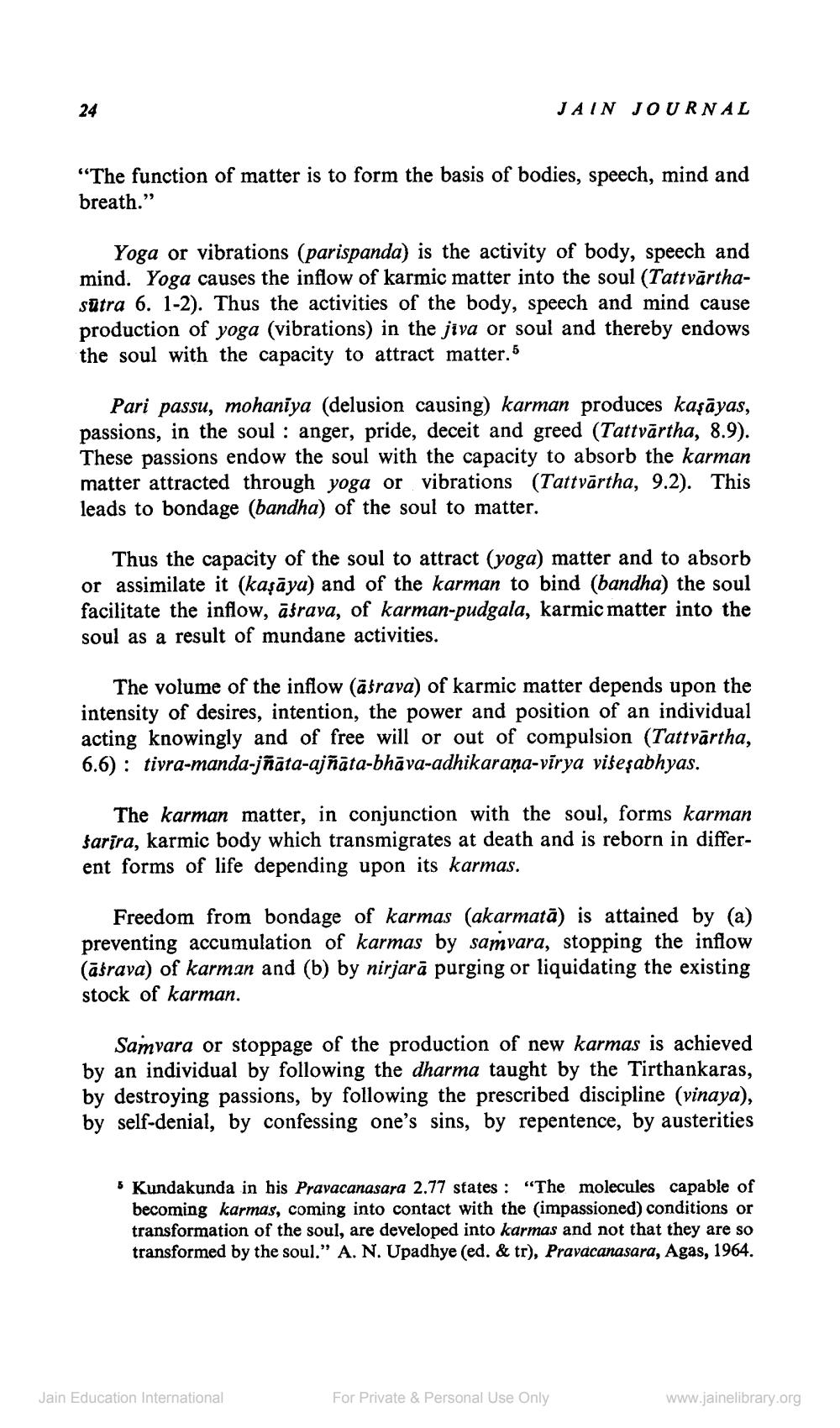________________
JAIN JOURNAL
“The function of matter is to form the basis of bodies, speech, mind and breath."
Yoga or vibrations (parispanda) is the activity of body, speech and mind. Yoga causes the inflow of karmic matter into the soul (Tattvārthasūtra 6. 1-2). Thus the activities of the body, speech and mind cause production of yoga (vibrations) in the jiva or soul and thereby endows the soul with the capacity to attract matter."
Pari passu, mohaniya (delusion causing) karman produces kaşāyas, passions, in the soul : anger, pride, deceit and greed (Tattvārtha, 8.9). These passions endow the soul with the capacity to absorb the karman matter attracted through yoga or vibrations (Tattvārtha, 9.2). This leads to bondage (bandha) of the soul to matter.
Thus the capacity of the soul to attract (yoga) matter and to absorb or assimilate it (kaşāya) and of the karman to bind (bandha) the soul facilitate the inflow, ātrava, of karman-pudgala, karmic matter into the soul as a result of mundane activities.
The volume of the inflow (ātrava) of karmic matter depends upon the intensity of desires, intention, the power and position of an individual acting knowingly and of free will or out of compulsion (Tattvārtha, 6.6): tiyra-manda-jñāta-ajñāta-bhāva-adhikaraṇa-vīrya višeşabhyas.
The karman matter, in conjunction with the soul, forms karman šarira, karmic body which transmigrates at death and is reborn in different forms of life depending upon its karmas.
Freedom from bondage of karmas (akarmatā) is attained by (a) preventing accumulation of karmas by samvara, stopping the inflow (āšrava) of karman and (b) by nirjarā purging or liquidating the existing stock of karman.
Samvara or stoppage of the production of new karmas is achieved by an individual by following the dharma taught by the Tirthankaras, by destroying passions, by following the prescribed discipline (vinaya), by self-denial, by confessing one's sins, by repentence, by austerities
$ Kundakunda in his Pravacanasara 2.77 states: "The molecules capable of becoming karmas, coming into contact with the impassioned) conditions or transformation of the soul, are developed into karmas and not that they are so transformed by the soul." A. N. Upadhye (ed. & tr), Pravacanasara, Agas, 1964.
Jain Education International
For Private & Personal Use Only
www.jainelibrary.org




